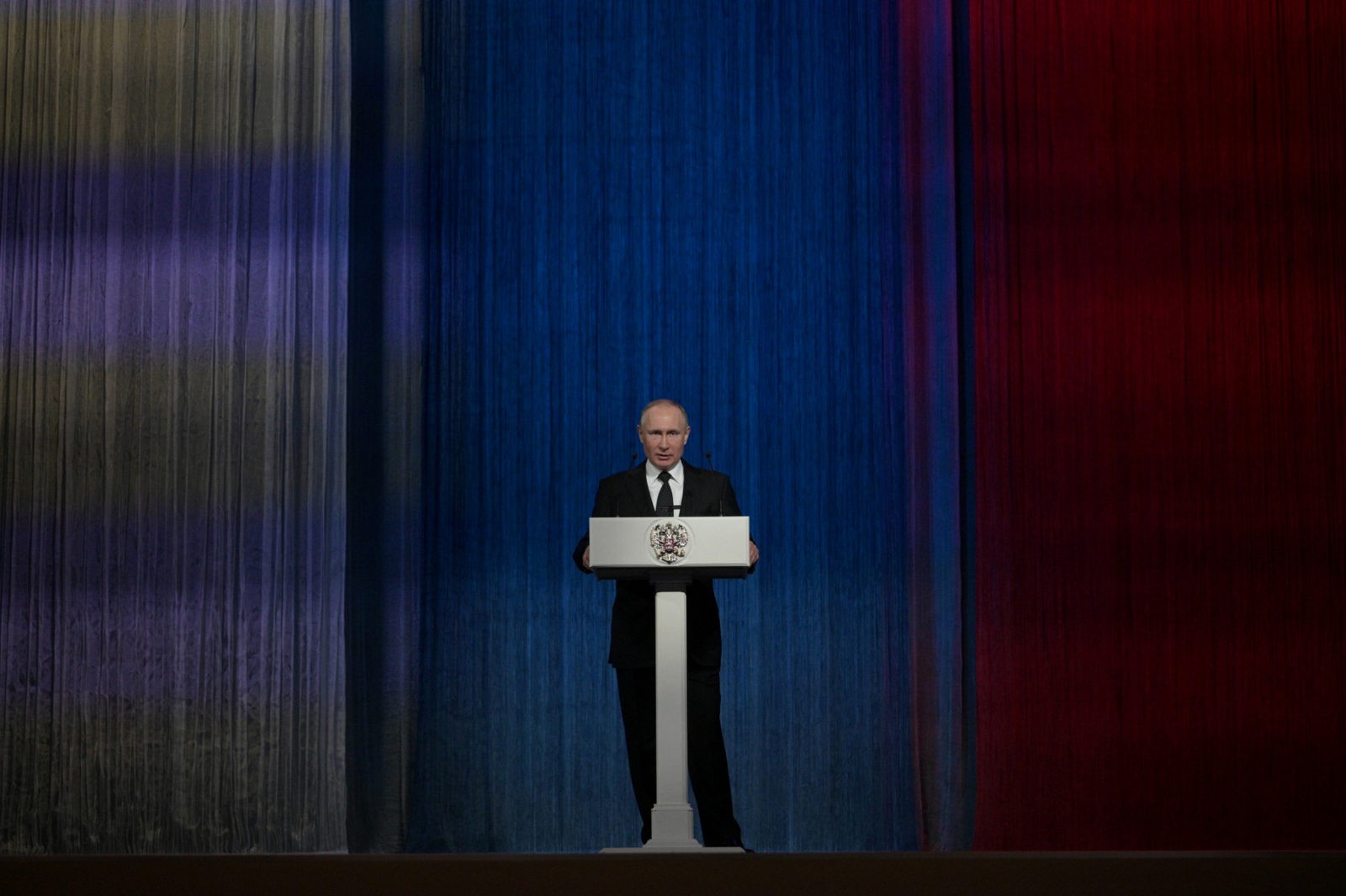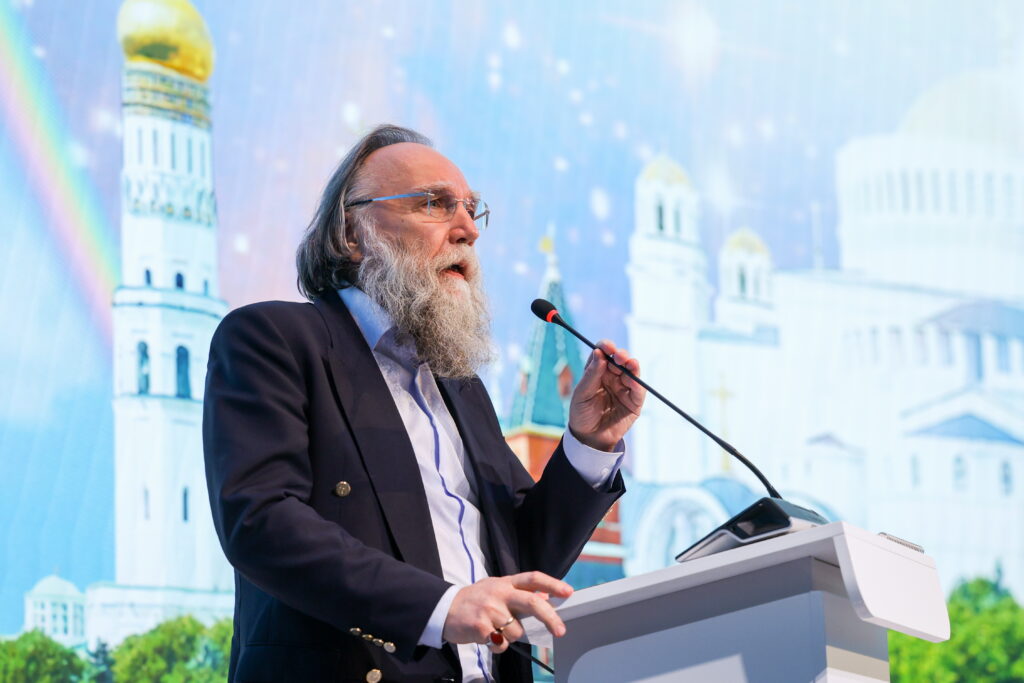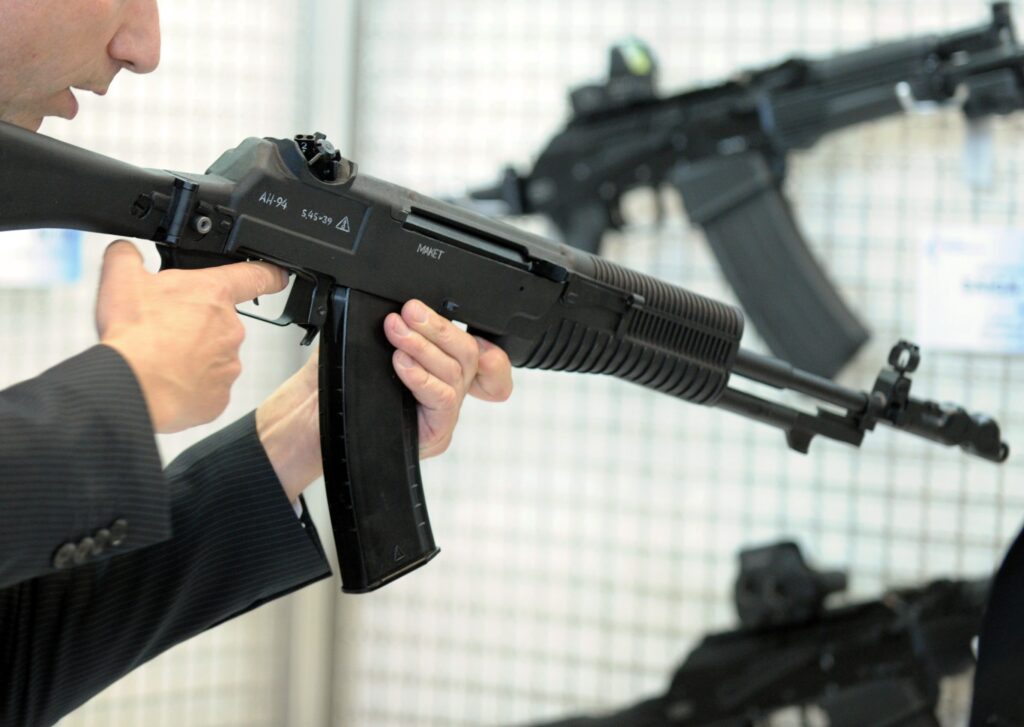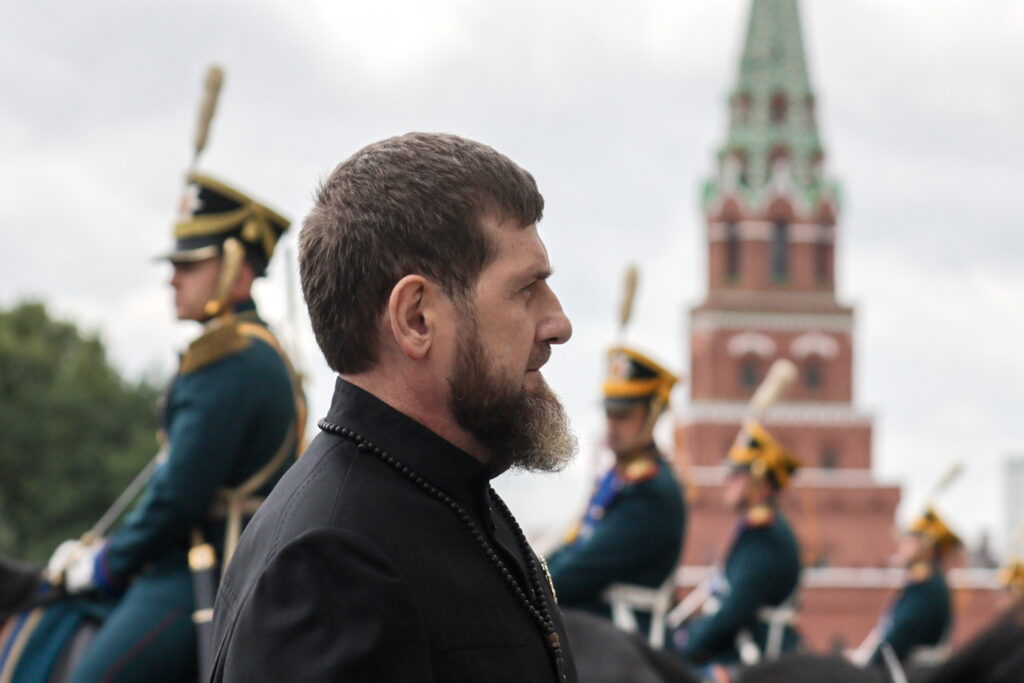There has recently been a lot of talk about Vladimir Putin’s falling political ratings. The casual observer might well be confused by the plethora of indicators and tools used by polling agencies to measure public support for the Russian president. They measure approval for the presidency, general levels of trust, readiness to vote for the politician in elections, and a range of further open and closed questions. The picture is further complicated by the fact that recently, various ratings have stopped correlating: for example, approval of Putin’s work as president has grown, but willingness to vote for him in elections is declining. Just how popular is the president? To try and answer that question, let’s take a look at the Levada Centre’s latest polling about Vladimir Putin.
From Crimea frenzy to pension woes
First it is worth recalling that all these ratings rose sharply after Russia annexed Crimea in 2014. The majority of the population regarded the move as a step towards restoring national greatness, leading to a palpable surge in optimism, national pride, and approval ratings for all state institutions. The main beneficiary of this improved mood was Vladimir Putin. That said, it is important to remember that his famous 86% approval rating at this time was achieved in extraordinary circumstances; such abnormally high ratings as these could never have remained stable for a prolonged period. A year after these memorable events, they steadily began to decline.
After the government announced plans for pension reform in mid-2018, all the president’s approval ratings plummeted. In one month, approval of the president’s activities fell by 15 points. Over just a few months, trust in the president fell by 20 points. In short, people felt that the authorities had deceived them by shifting the entire burden of rising budget expenditures onto the shoulders of ordinary citizens. At the time, many hoped that the president would not permit the unpopular reform and cancel it entirely. But their hopes were misplaced — and Putin’s ratings fell. Once this happened, continued high support for Putin no longer looked as certain.
But over the past year, approval of Putin’s actions as president has gradually increased once more. By the beginning of this year and the end of the last, this approval was shared by 68% of the population. This is linked to a rising confidence in the future which was noted last year. For the first time since 2014, the number of Russians who do not have enough money for food or have only just enough money for food has decreased. At the end of 2019, their share of the overall adult population fell to less than 20%. The most probable reason for this is general economic stability, low inflation, and the absence of serious shocks to the foreign exchange market. These factors have allowed Russians to adapt to new circumstances.
Nevertheless, levels of trust in Vladimir Putin and willingness to vote for him in presidential elections have continued to decline steadily over the past year and a half. These indicators are usually closely correlated and today, according to open questions without any hints or subtext, about 35% of the population answered negatively to both. It is worth noting that when counting only the opinions of Russians who say they would vote in the election, these pessimists comprise about 50% of respondents. So far, it has not been possible to stop these plummeting ratings. This indicates that attitudes towards Putin among Russian society are continuing to change.
Today most dissatisfaction with Putin, as usual, is concentrated among the most disadvantaged sections of Russia’s population. Rosstat, the state statistical agency, puts their number at 20.9 million. Other hotbeds of discontent are the country’s largest cities and its most economically active people. Putin is most strongly supported by pensioners and less educated citizens of all ages. Middle aged people (from 35 to 55 years old) are rather sceptical towards the president and the authorities in general. Meanwhile the youngest Russians, who were Putin’s most active supporters just a few years ago, now show much less interest towards him.
Fatigue upon fatigue
The changing fortunes of Vladimir Putin’s approval ratings can be summarised as follows: essentially, most Russians approve of the president’s work, but voters increasingly take a dimmer view of him personally. A better understanding of these dynamics can be gleaned by combining the data from quantitative surveys with the results of focus groups, during which respondents explain their views and express their understanding of the situation in Russia today.
A few years ago, participants in these focus groups would most often explain their support for Putin by citing examples of the president’s concrete achievements as they saw them. He “saved Russia,” one might say. He “made the whole world respect us,” another could add. But today, their main explanation is less stirring: they simply do not see any alternatives to Putin. Quantitative polls show similar results. Furthermore, over the past couple of years, the share of the population which has any deep interest in politics has noticeably declined. We are witnessing a growing sense of apathy and distance from political engagement — even while doubts are mounting as to whether Putin has any attractive vision of change to offer Russian society. Therefore, the president’s support in Russia today is increasingly linked not to any positive appeal, but rather to growing indifference and detachment, and the conviction that there simply is no alternative to Putin.
These days, even Putin’s supporters increasingly tell focus groups that the president is tired, getting old, and simply exhausted. To use another metaphor, perhaps the bright colours which bedazzled his supporters in years past have simply faded away. And they did not begin to fade yesterday. During the last presidential election two years ago, when Putin’s approval ratings were much higher than they are today, supporters of other candidates were already exhibiting a similar attitude. They agreed that the president was “out of date,” that “he is tired and Russia is tired of him,” and that he was becoming an obstacle to the changes people desperately wanted. Phrases like these can not just be heard from young people, but also their elders. In survey groups, people sometimes compare Putin with Koshchei the Immortal, a figure from Russian folklore. Others portray him as a classic Soviet-era gerontocrat, the Politburo’s ageing secretary general.
The president’s fatigue is regularly mentioned in discussions about 2024, when Putin’s next term — the last to which he is constitutionally entitled — comes to an end. When it comes to the final evaluation, many Russians are still grateful to Putin and see his time in office positively. That is an issue on which there is a public consensus, and one which still supports the political order. But as soon as the discussion turns towards the future, even some of those grateful supporters turn out to be less excited with the prospect of yet another presidential term for Putin. So if Putin is tired, so is Russian society: they are tired with a person who has occupied the preeminent position in Russian politics for a long time. Their tiredness could even pose a threat to the status quo.
Amendments: too little, too late?
This growing disillusionment with Vladimir Putin cannot be stopped by bellicose declarations. Neither the resignation of the government earlier this year, nor the departure of the unpopular Prime Minister Dmitry Medvedev, nor the announced amendments to the constitution have seriously impacted public sentiment for the better. At least not in the long term. After the president’s address to the Federal Assembly in December, state polling organisations noted a short burst of public positivity. However, the Levada Centre did not record any changes to the president’s approval rating; the only improvements were in favour of the head of government instead. Thus this short burst in positivity has long since passed — meanwhile, trust towards Putin as a politician has even declined slightly.
Moreover, the proposal to amend the constitution was actually welcomed by most Russian citizens. The most popular changes (endorsed by 80-90% of respondents) concern social policy, such as index-linked pensions and guarantees that salaries not drop below the minimum wage. This is not so surprising considering that, first and foremost, what Russians want from their government is better social guarantees. In his address, Putin told them exactly what they wanted to hear. The “political” amendments, which could limit the number of presidential terms or create a State Council, are actually the least interesting to respondents. In fact, 60% appear to support them. At the same time, half of all Russian citizens believe that the authorities are only amending the constitution to serve their own interests, with the needs of ordinary Russians a secondary consideration at best. Yet this does not bother most people, who appear willing to “let them do what they want to the constitution, as long as they spend a little more on us.” They won’t be put off by a few bad apples in the batch. After all, given that the amendments will be voted for as one package, polls suggest that there is every indication that the government will get the result it wants if a public vote is held April.
Why are these amendments to the constitution needed in such a hurry, and why are they needed right now? In Russia, where many significant political decisions are made behind several closed doors, it can be very difficult to answer questions like these with any chance of accuracy. However, in light of these opinion polls, the move looks like an attempt to guarantee safety to the country’s rulers. Against the backdrop of growing fatigue with a man who has occupied a key niche in Russia’s political system for many years, the authorities are trying to create additional guarantees to maintain the status quo.










